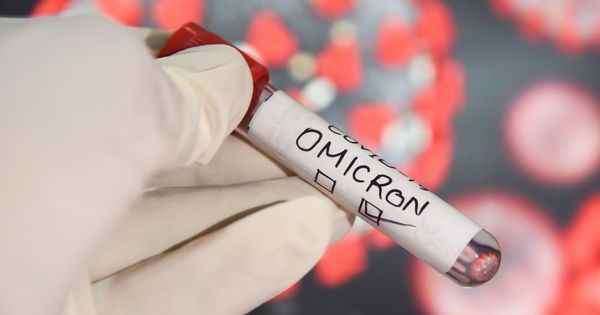Published ,
Reading 2 mins.
The Institut Pasteur reveals a predictive scenario where the spreading Omicron BA.2 sub-variant would not make a new wave, but some factors to consider could put everything into question.
The Omicron variant having spread faster than the others with an unprecedented explosion of cases, its BA.2 sub-variant, whose rapid expansion stood out more than the other Omicron sub-variants, quickly been put under surveillance. With the lifting of health restrictions, the Institut Pasteur wanted to model a predictive scenario based on the data already obtained on the BA.2 sub-variant, in order to assess the risk or not of undergoing a new wave.
“The BA.2 subvariant is not expected to generate a strong outbreak rebound”
The (perhaps) good news is that in the report of this scientific prediction, the Institut Pasteur states: “The BA.2 subvariant is not expected to generate a strong epidemic rebound in the short term, even though this variant is more transmissible than non-BA.2 Omicron viruses.”
The researchers explain Omicron has infected a large number of French people, the decrease in the wave that we are currently seeing is due, “for the first time” since the start of the episodic rises and falls of Covid, “to the level of immunity acquired through vaccination and infections”. And not to strict sanitary control measures.
Why you have to be careful about this assumption
But beware ! It is important to note that this modeling does not take into account several factors that could call it into question. This is what researchers at the Institut Pasteur warn. “We are indeed hypothesizing that people infected with an Omicron virus are immune to Omicron reinfections for the duration of the simulations (until April 1, 2022).” The study group did not take into account a possible risk of immune protection collapsing before or after this date or that one can be reinfected by Omicron or one of its subvariants. In this case, the conclusion reached would be “too optimistic”. “In order to make longer-term projections, it will be important to take into account the decline in immunity over time.”, they admit.
Consult a GP online
Cases of re-infection with BA.2 after being touched by Omicron observed
The problem is that on this side there is still a lack of data. The only recently reported study, conducted by researchers in Denmark, may cast doubt on the good news, as their pre-publication-only result for now reports possible reinfection with the BA.2 subvariant after Omicron infection ( BA.1).
For their study, the researchers studied the cases of 263 volunteers who tested positive for Covid, again after having already been in the 20 to 60 days preceding. After analysis, among these volunteers, 187 (71%) were again affected by Covid and 47 were not affected by the BA.2 sub-variant after having been affected by the original Omicron variant (BA.1).
Reinfections in this study mainly involved unvaccinated under 30s, but the total number of people for this study remains low.
On the other hand, what remains optimistic in this hypothesis is that the researchers do not report, despite everything, any person having required hospitalization or with serious symptoms.
